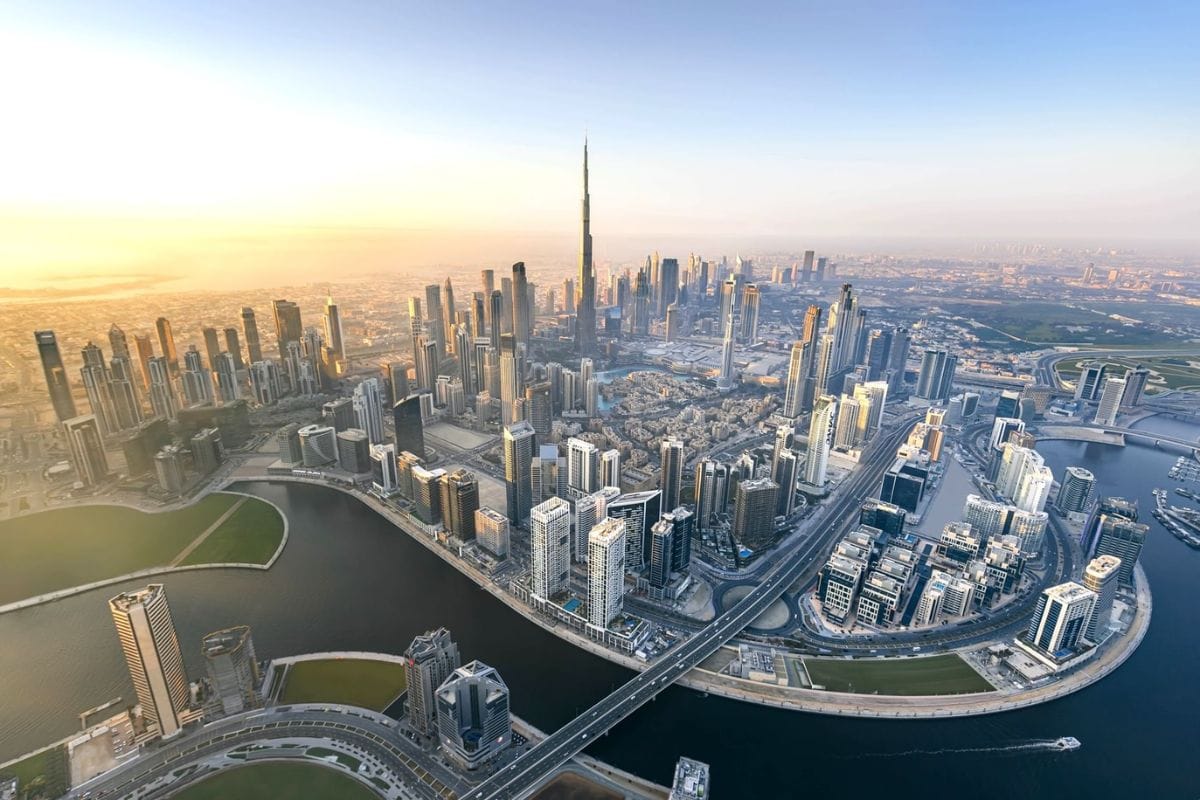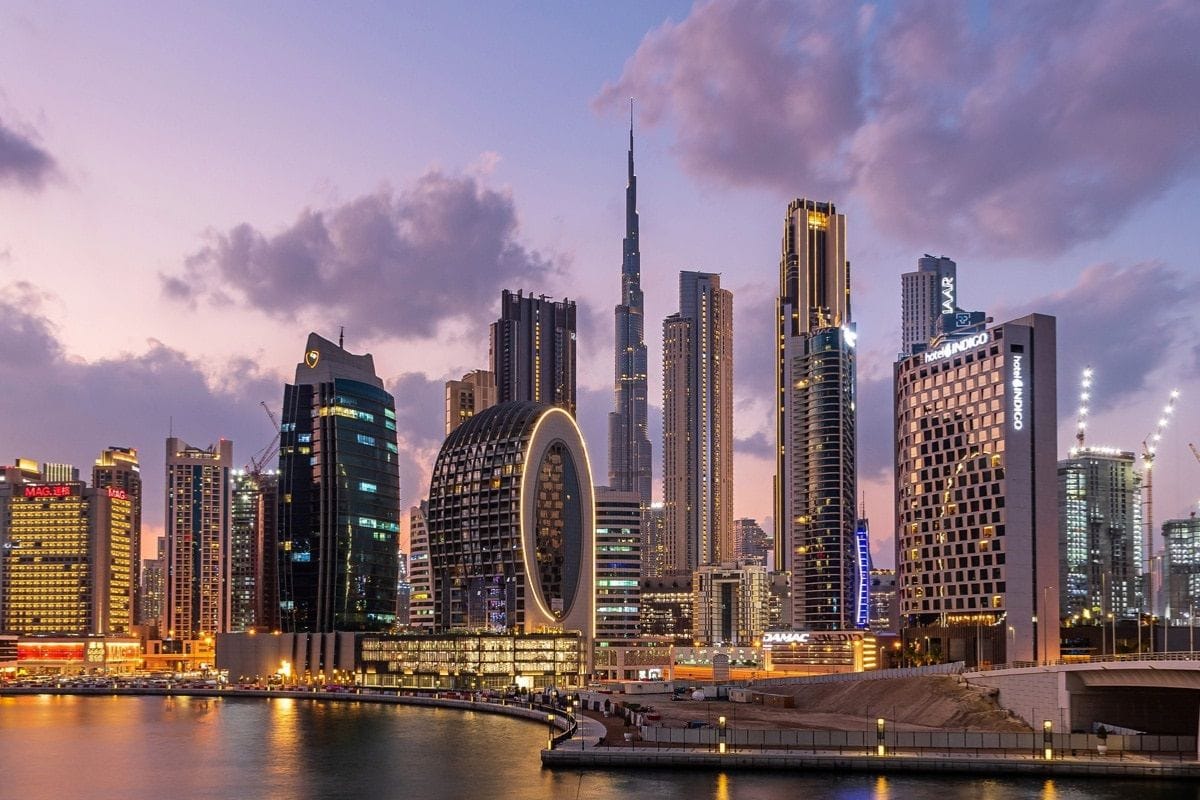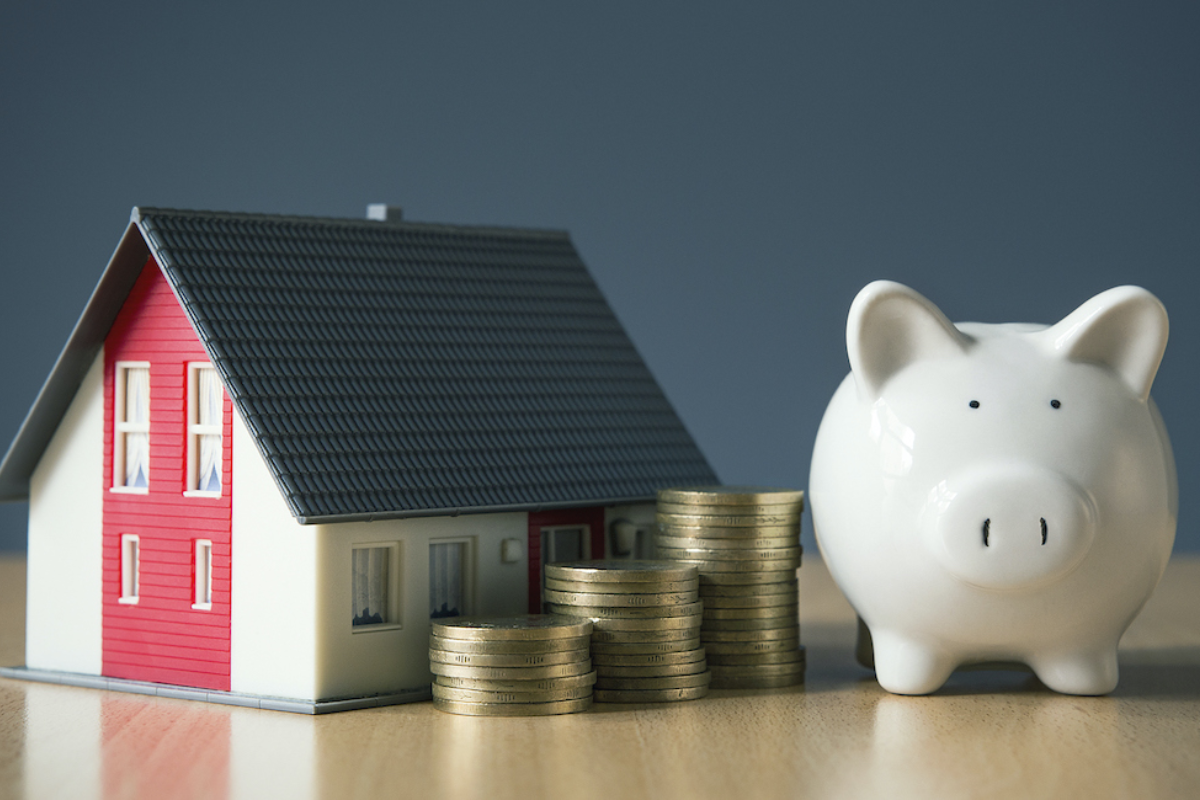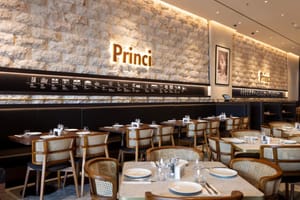In Dubai, many people still believe that renting is a waste of money. The idea is simple—why pay someone else’s mortgage when you could be building your own equity? This mindset has been shaped by the city’s fast-growing property market, where real estate investment is often seen as a sign of stability, success, and long-term planning. But is this belief still true today?
According to the Dubai Statistics Center, the city’s population is expected to reach nearly 4 million by the end of 2025, with expats making up over 87% of residents (Dubai Statistics Center). Most of these residents are not planning to settle permanently, which makes the idea of committing to a property purchase less practical.
Meanwhile, Dubai’s rental market continues to grow. As per Property Finder’s 2025 Rental Report, average apartment rents across the city have increased by more than 19% in the past year alone, driven by demand from both short-term and long-term residents (Property Finder, 2025 Rental Report). With rising rents, many are asking: Is buying property the only way to “make your money count” in Dubai?
At the same time, younger professionals, digital nomads, and new expat arrivals are beginning to question the pressure to buy. The availability of co-living spaces, flexible contracts, and a growing startup culture is shifting how people think about housing. Does owning a home still make sense when your career, lifestyle, or visa situation might change within a year?
In this article, we unpack the financial realities behind renting in Dubai, explore common myths around ownership, and reveal why renting might not only be reasonable but also smart.
Understanding Dubai’s Real Estate Landscape
Transient Population: A City of Expatriates
Dubai's population has experienced significant growth, reaching approximately 3.9 million in early 2025, with projections indicating it will surpass 4 million by year-end. This growth is largely driven by expatriates, who constitute about 92% of the population. The city's appeal lies in its tax-free income, strategic location, and robust infrastructure, attracting individuals seeking career advancement and international exposure.
Given this transient nature, long-term property ownership may not align with the plans of many residents. Renting offers the flexibility to relocate as career opportunities or personal circumstances change, without the commitments and responsibilities associated with property ownership.
Evolution of Property Ownership: The 2002 Freehold Decree
Prior to 2002, property ownership in Dubai was largely restricted to UAE nationals, with expatriates limited to leasehold arrangements. The introduction of the Freehold Decree in 2002 marked a significant shift, allowing foreign nationals to purchase, sell, lease, and rent properties in designated freehold areas. This legislative change opened up the real estate market to international investors and residents, contributing to a construction boom and the rapid development of iconic neighborhoods such as Dubai Marina, Downtown Dubai, and Palm Jumeirah.
Despite this liberalization, renting remains the predominant choice for many residents, particularly those uncertain about long-term settlement in the city. The flexibility and lower upfront costs associated with renting are often more compatible with the lifestyles of Dubai's diverse and mobile population.
Current Rental Trends: A Market in Flux
Dubai's rental market has experienced significant activity in recent years. In the third quarter of 2022, the city recorded 140,685 rental leases, marking a 13.59% increase from the previous quarter. Of these, 58.71% were new contracts, indicating a dynamic and growing rental sector.
To enhance transparency and fairness in the rental market, the Dubai Land Department introduced the Smart Rental Index in early 2025. This system classifies residential buildings with a star rating from one to five, providing tenants and landlords with clearer insights into property standards and appropriate rental values.
These developments reflect Dubai's commitment to regulating its rental market and ensuring it meets the needs of its diverse population. For many residents, especially those valuing flexibility and lower financial commitments, renting continues to be a practical and attractive option in the city's evolving real estate landscape.
Myth #1: "You’re Throwing Money Away"
Reality Check: The True Cost of Buying in Dubai
In Dubai, purchasing property involves substantial upfront expenses that often surpass initial expectations. For instance, acquiring a two-bedroom apartment in Dubai Marina, with an average price of AED 2.6 million, entails the following initial costs:
- Down Payment (20%): AED 520,000
- Dubai Land Department (DLD) Fee (4%): AED 104,000
- Real Estate Agent Commission (2%): AED 52,000
This totals approximately AED 676,000 in upfront costs, excluding additional expenses such as mortgage arrangement fees, valuation charges, and maintenance costs. Notably, recent regulations mandate that buyers cover these fees out of pocket, as banks no longer finance them.
Monthly Cost Comparison: Renting vs. Owning in Dubai Marina
Renting:
- The average annual rent for a two-bedroom apartment in Dubai Marina is approximately AED 138,208, equating to about AED 11,517 per month.
Owning:
- Mortgage Payment: Assuming a 25-year mortgage at a 4% interest rate for AED 2.08 million (after a 20% down payment), monthly payments would be around AED 11,000.
- Service Charges: With average service charges in Dubai Marina at AED 16.1 per square foot, a 1,500 sq. ft. apartment would incur approximately AED 24,150 annually, or AED 2,012.50 monthly.
- Maintenance and Other Costs: Additional expenses for maintenance, insurance, and unforeseen repairs can add several thousand dirhams annually.
Collectively, owning a property could cost upwards of AED 13,000 per month, surpassing the average rental cost.
Opportunity Cost: Alternative Uses for Upfront Capital
The AED 676,000 required upfront for purchasing could be allocated elsewhere:
- Investments: Placing this amount in diversified investment portfolios could yield returns, providing financial growth without the obligations of property ownership.
- Business Ventures: Capital could be used to start or expand a business, potentially generating significant income.
- Lifestyle Flexibility: Funds could support travel, education, or other personal endeavors, offering a lifestyle not tied down by property commitments.
Moreover, renting offers the flexibility to relocate without the complexities of selling property, a significant advantage in a city with a transient population.
Myth #2: "Buying is Always a Better Investment"
Market Volatility: Historical Fluctuations in Dubai's Property Market
Dubai's real estate market has experienced significant volatility over the years, challenging the notion that property investment is a guaranteed path to wealth.
- 2008 Financial Crisis: During the global financial downturn, Dubai's property prices plummeted by up to 60% in certain areas. This sharp decline was attributed to oversupply, speculative buying, and easy credit, leading to a cascade of defaults and foreclosures.
- COVID-19 Pandemic: In 2020, the pandemic further impacted the market, with house prices falling by 7.1%. The oversupply of apartments and decreased demand contributed to this decline.
These instances highlight that property values in Dubai are susceptible to global economic shifts, and investments can depreciate significantly during downturns.
Non-Investor Intent: Aligning with Residents' Realities
Dubai's population is predominantly expatriate, with approximately 92% of its 3.84 million residents being non-Emirati as of 2025. Many of these residents are in Dubai for work or short to medium-term stays, making long-term property investment less practical.
Renting offers flexibility, allowing residents to adapt to changing job markets, visa regulations, and personal circumstances without the long-term commitment and financial burden of property ownership.
Off-Plan Risks: Potential Pitfalls in Pre-Construction Investments
Investing in off-plan properties—buying units before they are constructed—can be appealing due to lower prices and the promise of capital appreciation. However, this approach carries inherent risks:
- Construction Delays: Projects can face significant delays due to various factors, including financial issues, regulatory hurdles, or unforeseen circumstances.
- Market Fluctuations: The value of off-plan properties can be affected by market volatility, potentially leading to lower-than-expected returns upon completion.
- Developer Reliability: The reputation and financial stability of developers play a crucial role. Investors may face challenges if developers fail to deliver projects as promised.
These factors underscore the importance of due diligence and risk assessment when considering off-plan property investments in Dubai.
Myth #3: "Renters Have No Stability or Control"
Legal Protections Ensuring Tenant Stability
Contrary to the belief that renting offers little stability, Dubai's legal framework provides robust protections for tenants:
- Mandatory Lease Registration: All tenancy contracts must be registered through the Ejari system, ensuring legal recognition and enforceability of tenant rights.
- Regulated Rent Increases: Landlords are required to adhere to the Real Estate Regulatory Agency (RERA) guidelines when increasing rent. The permissible increase is determined by how the current rent compares to the average market rate, with caps ranging from 5% to 20%.
- Notice Periods for Rent Adjustments: Landlords must provide a 90-day written notice prior to the lease renewal date if they intend to alter rental terms, including rent increases.
- Eviction Regulations: Evictions are only permissible under specific circumstances, such as the landlord wishing to sell the property or use it for personal reasons, and require a 12-month written notice.
Dispute Resolution Mechanisms
Dubai has established dedicated channels to address and resolve rental disputes:
- Rental Dispute Settlement Centre (RDSC): This body handles conflicts between landlords and tenants, offering mediation and legal adjudication when necessary. Tenants can file complaints regarding issues like unjustified rent increases, eviction notices, or maintenance disputes.
- Accessible Legal Recourse: Tenants can submit disputes online or in person, with the RDSC providing services in multiple languages and ensuring timely resolutions.
Flexibility and Autonomy for Renters
Renting in Dubai offers a level of flexibility that aligns with the dynamic lifestyles of many residents:
- Adaptability: Tenants can choose lease terms that suit their personal and professional circumstances, allowing for easier relocation or upgrading of living spaces.
- Financial Planning: Without the long-term financial commitment of a mortgage, renters can allocate resources towards other investments or savings.
- Maintenance Responsibilities: Landlords are typically responsible for major maintenance and repairs, reducing unexpected expenses for tenants.
Myth #4: "You Can’t Build Wealth While Renting"
Tax-Free Income: Maximizing Savings Potential
One of Dubai's most compelling financial advantages is its tax-free income environment. Residents benefit from:
- No Personal Income Tax: Allowing individuals to retain their full earnings.
- No Capital Gains Tax: Profits from investments, including stocks and real estate, are not taxed.
- No Inheritance Tax: Wealth can be passed on without tax implications.
This favorable tax structure enables renters to allocate a larger portion of their income toward investments and savings, accelerating wealth accumulation. As highlighted by Bricks Consultancy, the absence of personal income tax significantly boosts net earnings, making the UAE an attractive destination for investors seeking to grow their wealth without tax burdens.
Diverse Investment Opportunities Beyond Property
Renters in Dubai have access to a broad spectrum of investment avenues to grow their wealth:
- Global Financial Markets: Investing in international stocks, bonds, and mutual funds through platforms like the Dubai Financial Market (DFM) offers exposure to global economic growth.
- Cryptocurrency and Fintech: Dubai's progressive stance on digital assets provides opportunities in emerging sectors like cryptocurrency and fintech startups.
- Precious Metals: Investing in gold and other commodities serves as a hedge against inflation and currency fluctuations.
- Entrepreneurship: The city's supportive ecosystem encourages the establishment of side businesses, ranging from e-commerce ventures to consultancy services.
These alternatives offer renters the flexibility to diversify their investment portfolios without the long-term commitment of property ownership.
Lower Financial Liabilities and Greater Flexibility
Renting in Dubai comes with reduced financial obligations compared to property ownership:
- No Annual Property Taxes: Unlike many global cities, Dubai does not impose annual property taxes, alleviating a recurring financial burden for property owners.
- Avoidance of Maintenance Costs: Renters are typically not responsible for significant maintenance expenses, which can be substantial for homeowners.
- Flexibility to Relocate: Renting allows for easier relocation in response to career changes or personal preferences, without the complexities of selling a property.
This financial flexibility enables renters to adapt to changing circumstances and invest their savings more dynamically.
Real-Life Example: Building Wealth While Renting
Consider the case of Asad Khan, a 43-year-old entrepreneur who relocated his family from Surrey to Dubai in late 2024. By choosing to rent in Dubai Hills, Khan capitalized on the city's tax-free environment and vibrant economy to grow his wealth. He established Invest Dubai Real Estate to assist UK and European clients in investing in the local market. Khan highlighted the improved quality of life, including excellent healthcare, a safe environment, and lower overall costs, as key benefits of his decision to rent while building his business ventures.
In a city as fast-moving and opportunity-rich as Dubai, renting offers a level of flexibility that buying simply can’t match. With lower upfront costs and no long-term financial tie-downs, renters can adapt to job changes, explore different neighborhoods, or leave when needed, without being burdened by property commitments.
The absence of income tax and property tax in the UAE also allows renters to invest their savings more freely—whether in global markets, crypto, gold, or launching a business. Rather than locking up capital in one asset, renters can keep their money liquid and working for them.
At the end of the day, choosing to rent isn’t about avoiding ownership—it’s about making smarter, more adaptable financial decisions. Don’t let old money myths guide your future—Dubai’s rental lifestyle might be exactly what success looks like for you.
Also read:

















